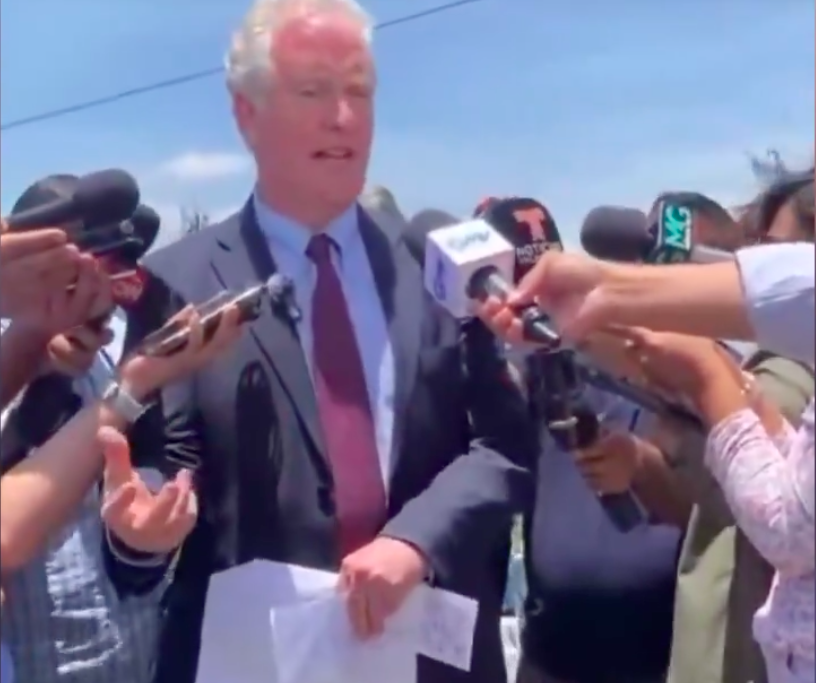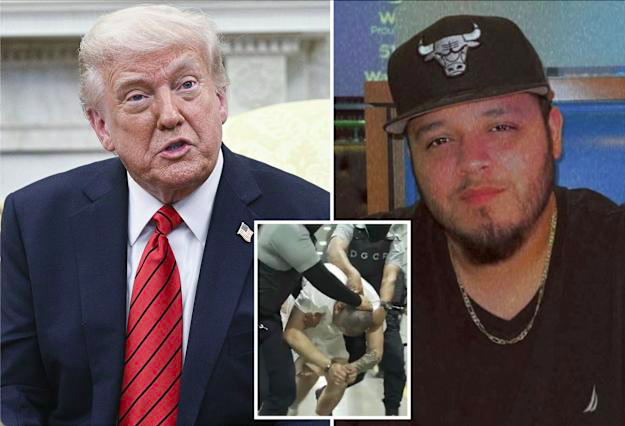Senator Van Hollen’s Attempt to Intervene in Deportation Case Rebuffed in El Salvador
In a striking diplomatic rebuke, U.S. Senator Chris Van Hollen (D-MD) was denied access to Kilmar Abrego Garcia, a Salvadoran national detained in El Salvador, during his recent visit to the country. Van Hollen’s trip aimed to advocate for Abrego Garcia’s return to the United States, following a Supreme Court order mandating his repatriation. However, Salvadoran authorities refused the senator’s request to meet with the detainee, highlighting the complexities of international legal and diplomatic relations.
I just landed in San Salvador a little while ago, and I look forward to meeting with the team at the U.S. embassy to discuss the release of Mr. Abrego Garcia.
I also hope to meet with Salvadoran officials and with Kilmar himself. He was illegally abducted and needs to come home. pic.twitter.com/MzKe7U8Wwr
— Senator Chris Van Hollen (@ChrisVanHollen) April 16, 2025
Abrego Garcia, who entered the U.S. illegally at age 16, was deported in March 2025 to El Salvador’s Terrorism Confinement Center (CECOT). This action occurred despite a 2019 immigration judge’s ruling that protected him from deportation due to potential persecution by rival gangs in his home country. U.S. Immigration and Customs Enforcement (ICE) later acknowledged that his deportation was an “administrative error.”
The case has become a flashpoint in the ongoing debate over immigration enforcement and due process. While some officials argue that Abrego Garcia has ties to the MS-13 gang, a designation that complicates his legal status, others contend that there is insufficient evidence to support such claims. Judge Paula Xinis described the deportation as “wholly lawless,” emphasizing the lack of legal authority for his removal and the absence of concrete evidence linking him to gang activity.
Van Hollen’s efforts to secure Abrego Garcia’s release have been met with resistance not only from Salvadoran officials but also from within the U.S. government. The Trump administration has been criticized for its handling of the case, with some accusing it of defying court orders and undermining the rule of law. Despite the Supreme Court’s directive, the administration has yet to facilitate Abrego Garcia’s return.
During his visit, Van Hollen sought to meet with Salvadoran President Nayib Bukele and Vice President Félix Ulloa to discuss the case. However, his requests were denied, and he was informed that the Salvadoran government would not arrange a meeting with Abrego Garcia or his family. This refusal underscores the diplomatic challenges involved in resolving such cases, particularly when allegations of gang affiliations are involved.
The senator’s trip has drawn criticism from various quarters, with some questioning the appropriateness of his involvement in a case that involves complex legal and security considerations. Critics argue that intervening in such matters could set a precedent that complicates future immigration enforcement efforts and diplomatic relations.
Abrego Garcia’s family, including his American wife and children, have been vocal in advocating for his return. They argue that he poses no threat and that his continued detention in El Salvador places him at risk of harm. Supporters have organized demonstrations and legal actions to pressure the U.S. government to comply with the court’s order.
The case has also sparked broader discussions about the balance between national security and individual rights. While the need to protect citizens from potential threats is paramount, ensuring that legal processes are followed and that individuals are not wrongfully detained is equally important.
In the meantime, Abrego Garcia remains in custody at CECOT, a facility known for its harsh conditions. Human rights organizations have raised concerns about the treatment of detainees there, citing reports of overcrowding and lack of access to legal representation.
As the legal and diplomatic wrangling continues, the case of Kilmar Abrego Garcia serves as a poignant example of the complexities involved in immigration enforcement and international relations. It highlights the challenges of ensuring justice and due process in a globalized world where legal jurisdictions and political interests often collide.
Senator Van Hollen has vowed to continue advocating for Abrego Garcia’s return, emphasizing the importance of upholding the rule of law and protecting the rights of individuals, regardless of their immigration status. However, the path forward remains uncertain, with legal appeals and diplomatic negotiations likely to continue in the coming weeks.
The outcome of this case could have significant implications for U.S. immigration policy and its approach to international legal cooperation. It underscores the need for clear protocols and accountability in handling deportation cases, particularly those involving individuals with complex legal histories and potential security concerns.
As the situation unfolds, observers will be watching closely to see how the U.S. government navigates the legal obligations imposed by its own courts and the diplomatic challenges posed by foreign governments. The resolution of Abrego Garcia’s case may well set a precedent for how similar cases are handled in the future.





